EXCEPTIUS: Exceptional powers in time of Sars-CoV-2 crisis

Since January 2020, governments have engaged in exceptional decision-making to limit the propagation of the Covid-19. Although initially strong, public support for emergency measures has eroded as the severity of the pandemic has lessened. Throughout Europe, citizens and scholars are increasingly critical about the democratic and human right costs of the management of the pandemic. Moreover, exceptional measures can durably affect democratic governance.
If unaddressed, this decrease in public trust can reduce citizens’ compliance with public health measures and destabilize democratic stability. This calls for urgent research on the modalities, impacts and determinants of emergency decisions in crisis times. To meet this need, EXCEPTIUS analyses exceptional decision-making in 32 European countries. The project contributes interdisciplinary knowledge to the study of democratic resilience, by assessing why some democratic systems prove more resilient to crises and which political reforms increase such resilience.
Project team and sponsors
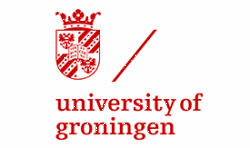
The project is led by Dr Clara Egger of the Centre for International Relations Research, in collaboration with Prof. Dr Kees Aarts of the Faculty of Social and Behavioral Sciences, and with the support of the UMCG and of the University-wide theme Sustainable Societies.

The project benefits from the generous support of the Dutch Organization for Health Development and Research (ZonMw, project number: 10430032010026).
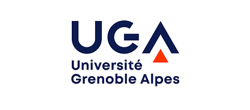
The University Grenoble Alpes, France (Prof. Raul Magni-Berton and Prof. Sébastian Roché) is co-coordinating the project with a specific focus on knowledge dissemination and transfer.

With the support of Globalisation Studies Groningen.
The project is supported by a multidisciplinary board of experts from several leading European universities. The data collection effort involves a large consortium of European partners (see list below).
Research Objectives
The general objective of the project is to analyze the modalities, impacts and determinants of emergency decision-making in Europe through a cross-country empirical analysis. Three specific objectives are pursued.
First, we intend to define and document metrics of exceptional decisions and their daily implementation from January 31st in each European subnational region in an open-access dashboard. We expect data for 15 European countries to be available two months after the start of the project and all countries of the European Economic Area (EEA) to be covered after nine months.
Second, combining our data with the evolution of the pandemic in European subnational regions, we will assess the impact of emergency measures on a) democratic stability, b) political legitimacy, d) compliance and e) the containment of the pandemic. This allows us to identify, after 14 months, the best practices in terms of pandemic management and to strengthen the evidence-based of exceptional policy making in the Netherlands.
Our third objective is to identify the determinants of the variation of governmental emergency measures through a two-staged approach. In the first stage, we will investigate how governments respond to the severity of the health crisis. To better seize the rationale behind emergency decision-making, we introduce political indicators pertaining to the political culture, legal and constitutional constraints, type of national institutions, political pre-crisis context and international commitments. Doing so will enable, by the end of the project, the identification of adequate political reforms which may make the Dutch political system and society more resilient to the pandemic but also to future crises.
EXCEPTIUS governance and partners
EXCEPTIUS' board
EXCEPTIUS' board is a restricted group that aims to solve the strategic problems arising over the course of the project. The board seeks to represent the diverse disciplinary fields / expertise concerned by the project.

Prof. Dr Adam Crawford
Criminology
Director of Leeds Social Sciences Institute

Prof. Dr Claire Dupuy
Political science (public policy analysis)
Université Catholique de Louvain

Assoc. prof. Patrycja Grzebyk
International Law and Human Rights
Faculty of Political Science and International Studies
University of Warsaw

Ms Caroline Vernaillen
Community Manager and International Partnerships
Democracy International e.V, Germany
The project's partners
The project’s partners include national team leader who are managing national data collection (on metrics of exceptionalism and on the impacts of exceptionalism). In the largest countries, especially characterized by decentralized/ federal policy-making, several team leaders are collaborating to collect data.

Dr Anna Khakee
Christa Callus
Malta
anna.khakee um.edu.mt
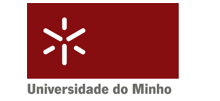
Dr Roberto Merrill
Adriana Macedo
Portugal
nrbmerrill gmail.com

Assoc. Profc Wojciech Brzozowski
Assoc. Prof. Patrycja Grzebyk
Poland
w.brzozowski wpia.uw.edu.pl
patrycja.grzebyk uw.edu.pl

Dr Marcello Carammia
Italy
marcello.carammia unict.it

Prof. Agnes Cornell
Sweden
agnes.cornell pol.gu.se

Prof. Agnes Batory
Oliver Pilz
Hungary
batorya ceu.edu
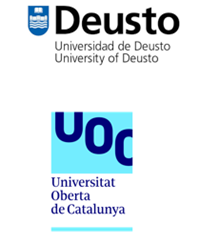
Assoc. prof Cristina Churruca
Assoc. prof Gorka Urrutia Asua
University of Deusto, Spain
gorka.urrutia deusto.es
cristina.churruca deusto.es
Francesc Guillén Lasierra
Generalitat de Catalunya / Open Univ. Catalonia
fguillen gencat.ca

Dr Corentin Poyet
Risto Niemikari
Finland
corentin.poyet tuni.fi

Prof. Christian Bjørnskov
Denmark
chbj econ.au.dk

Dr Vicky Conway
Ireland
vicky.conway dcu.ie

Prof. Adam Crawford
Dr Elena Sciandra
United Kingdom
A.Crawford leeds.ac.uk

Prof. Claire Dupuy
Belgium
claire.dupuy uclouvain.be
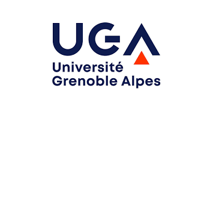
Prof. Raul Magni Berton
Prof. Sébastian Roché
Sciences Po Grenoble
CNRS
France
Raul.magniberton iepg.fr
sebastian.roche sciencespo-grenoble.fr
Contact
For more information about the project or to join as a national team leader, contact Dr Clara Egger, project leader: c.m.egger rug.nl
| Last modified: | 24 January 2024 09.54 a.m. |
